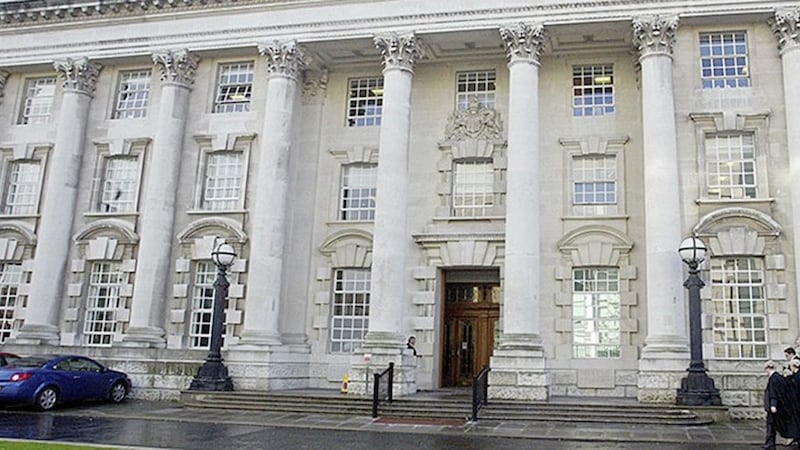NORTHERN Ireland's Secretary of State is under no legal obligation to introduce compensation payments for survivors of historical institutional abuse, the High Court heard yesterday.
Counsel representing Karen Bradley also insisted it was wrong to think she has the power to legislate on the redress scheme recommended by a major inquiry.
A man subjected to beatings and sexual ill-treatment during his time at a children's home is seeking an order for the proposed payments to be implemented.
Now in his seventies and identified only as JR80, he has brought the case on behalf of other survivors.
But Tony McGleenan QC said: "The contention that the Secretary of State has the capacity on a free-standing basis to address all the applicant's concerns in respect of the redress scheme is untenable."
In 2017 the Historical Institutional Abuse (HIA) Inquiry published a report recommending compensation ranging from £7,500 to £100,000 to those who suffered neglect and assaults at homes run by religious orders and the state between 1922 to 1995.
With no functioning Assembly at Stormont since devolution collapsed, the challenge is aimed at having the Secretary of State and Executive Office compelled to take immediate steps on the pay-outs.
The court heard that up to 30 people who suffered abuse have died since the report was issued.
JR80's lawyers argued that elderly victims are dying amid a complete loss of democratic accountability and branches of government "pass the parcel" over responsibility for implementing the redress scheme.
During the hearing it emerged that the head of the Civil Service in Northern Ireland plans to ask the Secretary of State to put draft legislation dealing with the redress scheme before Parliament.
The request is expected to be made after a consultation process is analysed over the Easer period.
On day two of the hearing Mr McGleenan set out how, under devolution, the Secretary of State has no power to control Stormont departments.
"That link was fractured in 1998 and has never been reconnected," he said.
"There's no means by which the Secretary of State can step into the arena and direct the Northern Ireland departments."
Counsel submitted that the Northern Ireland Act anticipated the current political hiatus with a "built in design feature" that functions should be discharged by the departments.
He continued: "There's no identified obligation on the Secretary of State to intervene."
Philip McAteer, for the Executive Office, said it agreed that the compensation arrangements should be put in place.
But he stressed: "It doesn't have the power, the authority, funding approval or funding itself to implement a redress scheme."
The court was told the Executive Office has pursued the only option open to it, with the request due to be made for Mrs Bradley to lay three pieces of proposed legislation before Parliament.
Responding to queries, Mr McAteer contended that the redress recommendations were a matter for either the Northern Ireland Assembly or Westminster.
The hearing continues.







